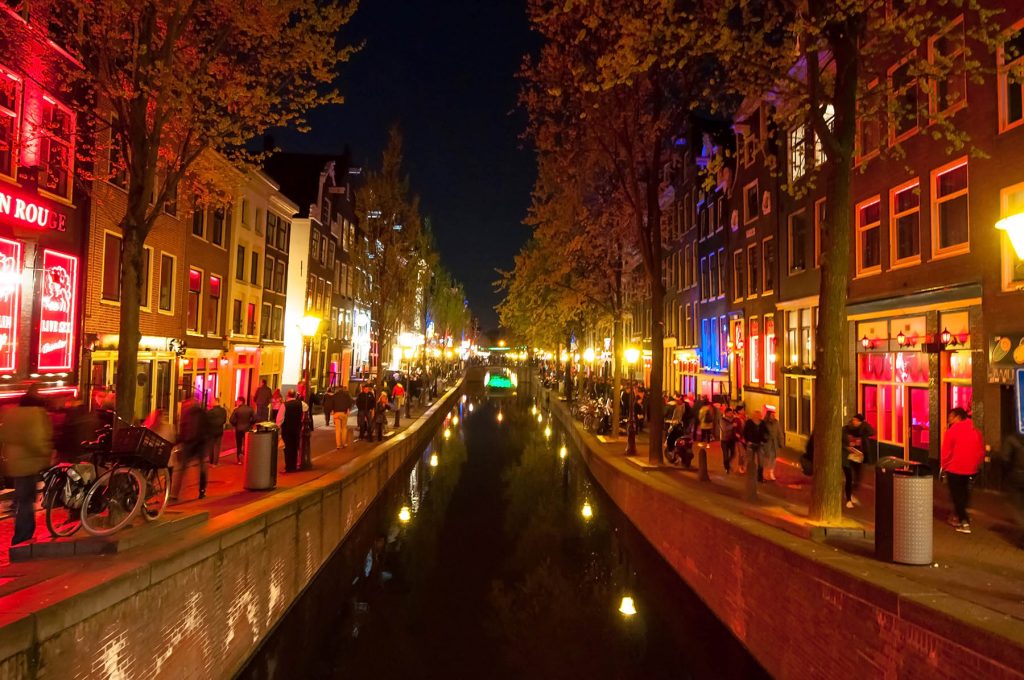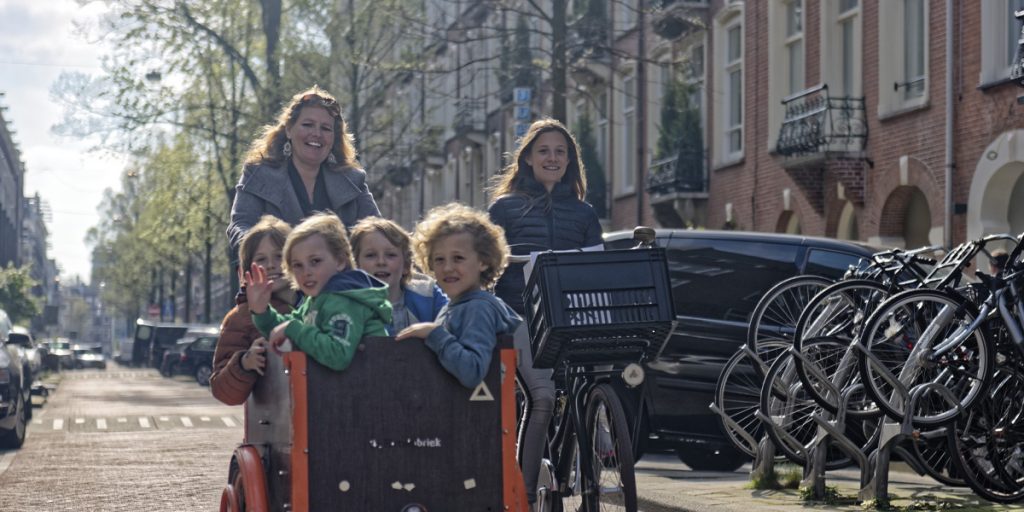Sex, Drugs & Bicycles seeks to uncover whether the Dutch model of social democracy is just as good as it sounds, in this bright, engaging documentary sequel.
Traditionally known for its windmills, tulips, and wooden clogs, the Netherlands has gained a unique reputation over the last few decades as an ultra-liberal and tolerant nation with a seemingly utopian social democratic experiment where the sex and drugs are just as freely available as the healthcare. There’s plenty of overwhelming evidence that their system works—the Netherlands is consistently ranked among the world’s top nations for healthcare, education, happiness, and quality of life. But is it really as good as it sounds?
In his 1994 documentary Sex, Drugs & Democracy, filmmaker Jonathan Blank travelled to the Netherlands to answer this question. Told through interviews with subjects like sex workers, marijuana growers, and politicians, his documentary offers an intriguing look at Dutch society in the 1990s and makes what seems to be a compelling case for the Netherlands’ lax left-libertarian laws. Yet, his film painted a bit too good of a picture, offering only positive arguments with no room for critical and opposing views, warranting justifiable skepticism about whether this system is as perfect as it sets out to be.
In his new documentary Sex, Drugs & Bicycles, Blank aims to discover whether the Netherlands’ brand of social democracy is still successful today. In some ways, this sequel marks a major improvement from Sex, Drugs & Democracy, most successfully in its larger scope that offers a more comprehensive view of Dutch society. Where Blank’s original documentary focused mainly on sensational issues like sex work and drugs, Sex, Drugs & Bicycles also explores a wider range of topics like healthcare, racism, climate change, education, childcare, media, and free speech. Similarly, we get to hear more diverse voices this time, like the perspective of children, immigrants, and transgender sex workers. There’s a lot packed into the film’s brief 85-minute runtime, but it never feels overwhelming and it maintains a consistent sense of structure.

Populated entirely with one-sided talking head interviews and flat b-roll footage, Sex, Drugs & Democracy suffered from a predictable and uninspiring presentation. Sex, Drugs & Bicycles vastly improves with its creative approach, making for a much more engaging watch. With its colorful animated sequences, sweeping cinematic shots of Dutch landscapes, and playful music choices, the film ensures a breezy watch that never fails to hold the viewer’s attention. While a strongly opinionated film, Blank’s subjective approach feels warranted with his outsider perspective and his personality shines through with his wry sense of humor. In addition to narrating the film, he voices the interview questions, often asking follow-up questions that elicit amusing reactions from his interview subjects. These moments feel much more casual and intimate than we’d expect from a documentary, and Blank’s curiosity keeps us eager to learn more.
However, Sex, Drugs & Bicycles feels like it’s spread a bit too thin at times and misses some nuance as well as the critical perspectives its predecessor ignored. Some of the film’s observations don’t go quite deep enough, such as when it briefly explores the rising popularity of far-right politicians like Geert Wilders. Blank raises a curious observation about how a demagogue arises in a country with such a robust social democracy and quality of life, but he doesn’t offer much insight into this topic and instead seems more interested by the Dutch far right’s surprising pro-LGBT stance. Similar to Sex, Drugs & Democracy, this film feels a bit selective with its arguments and occasionally you get the impression that it seems to be romanticizing Dutch social democracy instead of properly interrogating it like the original premise sets out to do. If this film was more critical and questioning instead of acting so gleefully surprised by the observations it encounters, it could have presented a more complex and compelling case for the audience to think about.
Sex, Drugs & Bicycles will air on February 26th (US) as part of PBS’ Link Voices series, and will also be available available everywhere the Link Voices series airs, including DirectTV, Apple TV, YouTube and Roku.

